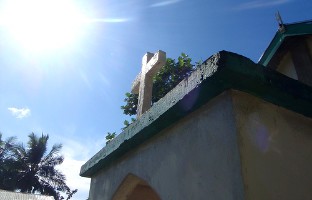Trouble in paradise

As Christianity has spread around the globe, interfaith contacts have become vastly more complex. Not only do Christians now interact much more extensively with Buddhists, Hindus and members of other Asian faiths, but they no longer do so solely as humble minorities. Euro-Americans might find the resulting religious politics quite unsettling.
Consider for instance the nation of Fiji, a country in the Pacific known to Westerners mainly as an exotic tourist destination or a splendid layover en route to New Zealand or Australia. In recent years, though, the country has acquired a troubling reputation for religious and ethnic confrontations.
From 1874 to 1970, Fiji was part of the British Empire, creating a connection that endures today: Fijians have long made up a respectable share of the fighting strength of the British army in Afghanistan and elsewhere. British rule also helped make Christianity a potent force across the Pacific region. Today, Christians make up around 60 percent of Fiji's 880,000 people, with the Methodist Church the largest denomination. Fijian Christianity has a potent streak of charismatic enthusiasm and a taste for miracle healers such as Benny Hinn and Reinhard Bonnke. In 2003, one revival crusade reportedly drew over 100,000 believers.




